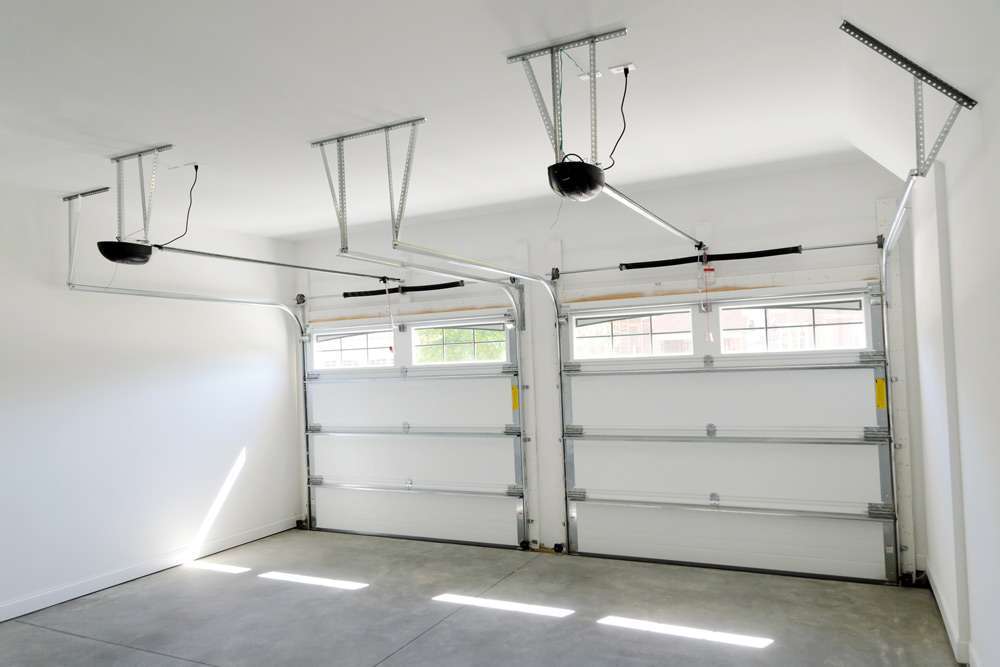Aside from the thunderous noise this would cause, the door might sustain incredible damage if it plunged to the ground. Furthermore, anything in the door's path a bicycle, the hood of a car, a child or a pet could be crushed or severely harmed or injured from the weight of the door.
For that reason, if you know your extension springs have actually already stopped working, close the door and do not open it not even by hand until you have those springs replaced. If you raise it just as soon as, the cables could stop working. Without the support of garage door cables, none of the opener's protective mechanisms will stop the door from its plunge.
This is a none-too-uncommon issue on newly installed garage doors, where the opener may be set to an arbitrary factory setting that doesn't match the door in concern. To sum up:: incorrect settings: bad inputs: medium: change settings: normally Sensitivity settings permit the opener to understand how much force will be required to raise and reduce a particular door.
Consequently, the opener will not react to activation triggers if the settings are off and the garage door won't close. A dead battery is not the only concern that can avoid a remote from doing its task. If you push the button and the door stops working to activate, something may be obstructing the signal.
 Garage Door Won't Open Or Close
Garage Door Won't Open Or Close
There is also the possibility that the remote antenna on the opening device has been obstructed or harmed. To sum up:: obstructed signal: bad inputs: medium: change settings: normally If your garage door will not open when you press the remote, there might be a branch or some other stepping in things obstructing the signal.
If your remote no longer works from the very same angles you have actually constantly used it, and changing the batteries does not help, it might be time to trim some branches. However, the obstruction might be directly on the remote antenna. You can frequently fix this scenario by checking the antenna for traces of dirt or foreign matter.
From time to time, an antenna will somehow get misdirected. If the antenna is in reality broken, call a service individual. One of the wackier malfunctions that accompanies some doors is the shut-reverse, where the door closes as triggered, only to rise back up the minute it touches the ground.
To sum up:: incorrect settings: bad inputs: medium: adjust settings: generally What is the limit setting? It's a programming system that lets the opener know just how much motion is required to totally close or open a garage door. The amount of motion is attended seconds the settings for which are programmed on a scale of high or low.
If the settings are too high, the opener will think that a door has actually closed prematurely when it touches the ground, and, for that reason, error the ground for a blockage. Given that openers are set not to close on foreign objects, the door will instantly reverse itself. If your door behaves in this method, have an upkeep expert check the limitation settings on your garage door opener and make changes if needed.
However, none of these actions could perhaps stay focused along the garage entrance and ceiling if not for the metal tracks that keep the door in line. For that reason, the tracks that direct the door must be straight and even on both sides. If either track ends up being a little open, it can slow the movement of the door. A problem like this can grow out of hand as the months endure, and the weight of the door causes more tension. If you understand or perhaps notice that your door tracks have lost their alignment, call a service specialist instantly. If a door reverses upon closing, there could be something in the way that positions as an obstruction.
Why Won't My Garage Door Open?
Various products that would fall below the beam of the photo-eye can trigger a door to reverse itself, such as foliage, paper and even used gum. After all, a door is programmed to only close on strong ground and reverse course if anything foreign is come across along the method. To summarize:: reverse activation: tiny things, dirt, refuse: medium: get rid of blockages: if obstructions can't be found Blockages that house owners frequently neglect are not simply discovered on the ground, as the tracks can likewise get lined with products that might halt https://www.johnsgaragedoorrepair.com/blog/ and reverse the closing of a door.
 Why Is My Garage Door Remote Not Working?
Why Is My Garage Door Remote Not Working?
To avoid this from happening, inspect the tracks from time to time, and clean them if essential. Often when a garage door will not open or close, it does not actually indicate there is anything wrong with the door, your remote or perhaps among the opener-assembly parts. The problem might all boil down to the easy goof of a detached motor.
Often, however, the cable that connects to the motor switch will get caught and pulled, hence disabling the motor. In some circumstances, it might be since of human mistake. Have you ever accidentally pulled a cable or flipped a switch? That extremely action might be the source of your problem.
Seriously. To sum up:: lock mode activated: human mistake: minor: shut off lock mode: no With some garage openers, a feature exists that allows you to put the opener in lock mode. You can activate this function by holding down the button on your keypad for a number of seconds. Once locked, a typical press of the button will not activate the door.